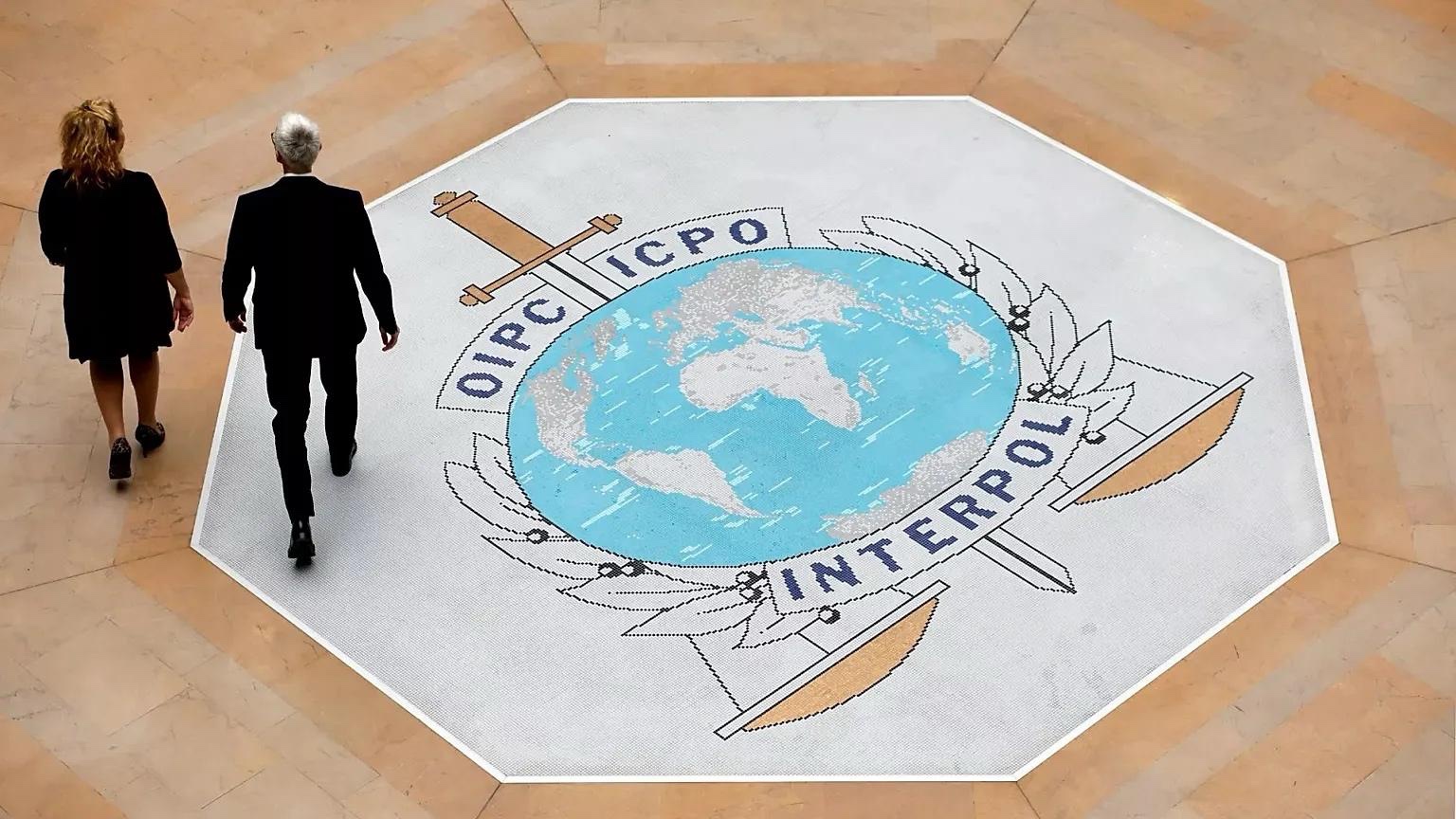Interpol has confirmed the arrest of 260 suspects across 14 African countries in a sweeping cybercrime operation targeting online romance scams and sextortion. The coordinated crackdown, which took place between late July and mid-August 2025, revealed the vast scale of fraudulent networks exploiting digital platforms to prey on vulnerable victims. More than 1,400 people were identified as victims, with financial losses estimated at almost 2.8 million US dollars. The operation, codenamed Operation Contender 3.0, underscores how online fraud has evolved into a transnational threat requiring cross-border cooperation and advanced investigative methods.
The investigation was led by Interpol in collaboration with national security agencies across Africa. It was supported by private cybersecurity firms and funded by the United Kingdom’s Foreign, Commonwealth and Development Office through the African Joint Operation Against Cybercrime. In addition to the arrests, more than 1,200 devices were seized, 81 criminal infrastructures were dismantled, and multiple financial channels were disrupted.
Expanding Cross-Border Cybercrime Operations
Africa has emerged as one of the fastest-growing hubs for online fraud, partly due to the rapid expansion of internet access and mobile connectivity. Fraudsters have taken advantage of both legitimate platforms and unregulated spaces to run scams that often blur the lines between romance, extortion, and identity theft.
Interpol’s report highlighted the international character of these schemes. Criminal groups operating in countries such as Ghana, Nigeria, Côte d’Ivoire, and Senegal were linked to fraudulent activities that spanned continents. Victims included not only local residents but also individuals in Europe, North America, and Asia who had been lured into emotional or intimate exchanges with criminals posing as potential partners.
Ghana’s Large-Scale Arrests
Ghana recorded the largest number of arrests, with 68 suspects detained. Authorities seized more than 800 devices and uncovered losses of about 450,000 US dollars. The police noted that suspects used stolen images and fake identities to manipulate victims into sending money, often under the pretext of covering customs duties or urgent fees.
Victim testimonies revealed how perpetrators gradually built trust through daily conversations before introducing fabricated emergencies. In some cases, victims were asked to finance supposed shipments of goods, while in others they were pressured into sending money to unlock false inheritances or business opportunities. Ghanaian investigators also identified cases where victims were targeted for sextortion, with criminals recording explicit videos during online chats and later demanding payments to prevent exposure.
Senegal’s Social Media Deception
In Senegal, authorities arrested 22 suspects who had been impersonating celebrities and influencers on social media platforms and dating apps. These actors exploited the trust associated with well-known personalities to lure victims into communication channels where financial and intimate manipulation took place.
Investigators identified more than 120 victims linked to this network, with total losses estimated at 34,000 US dollars. The police confiscated dozens of electronic devices and discovered falsified identity documents, suggesting the scam was highly organized. The Senegalese police emphasized the need for digital literacy campaigns, warning that citizens should not assume that verified social media profiles automatically belong to genuine public figures.
Côte d’Ivoire’s Sextortion Rings
Côte d’Ivoire became a focal point for sextortion cases. Police there dismantled a ring of 24 suspects connected to over 800 victims worldwide. The criminals had developed sophisticated online profiles designed to build trust before coercing victims into sharing compromising photos or videos. Once obtained, the material was used to demand ransom payments under threats of public exposure.
Authorities confiscated nearly 30 devices and are working with Interpol to trace financial flows. Investigators noted that some victims had paid multiple times, hoping to stop further leaks, only to be pressured again. The case revealed how psychological manipulation can be as damaging as financial loss, leaving victims traumatized and isolated.
How Fraud Networks Operate
Romance scams and sextortion rely heavily on psychological pressure. Perpetrators exploit loneliness, emotional vulnerability, or the desire for companionship. They often approach victims through dating apps, messaging platforms, or social media, then quickly move conversations to private channels where control becomes easier.
Once trust is established, criminals either create fabricated emergencies to solicit money or induce victims into intimate exchanges that are later weaponized through extortion. According to cybersecurity experts, fraud rings share digital infrastructures such as SIM cards, cloud accounts, and IP addresses, allowing them to scale operations across multiple countries.
Patterns of Exploitation
Investigators found consistent patterns across all participating countries. Fake courier receipts, counterfeit customs documents, and staged photographs were commonly used to convince victims of legitimacy. Perpetrators also rotated online identities, often recycling the same stolen images across different accounts.
Interpol stressed that the sophistication of these operations demonstrates a shift from isolated scammers to structured networks. These networks operate almost like businesses, with designated roles such as recruiters, digital engineers, and financial mules.
Role of International Cooperation
The success of Operation Contender 3.0 demonstrates the necessity of cross-border collaboration. By sharing intelligence in real time, participating countries were able to dismantle infrastructures that would have been invisible if investigated in isolation. Interpol partnered with private cybersecurity firms like Group IB and Trend Micro, which provided technical expertise in identifying servers, domains, and malware tools used by the fraudsters.
According to Interpol Secretary General Jürgen Stock, such collaborations must become the standard in combating global cybercrime. He emphasized that no single country can manage the threat alone given its borderless nature.
Implications for Victims and Communities
Beyond financial damage, victims of online fraud face lasting emotional scars. Many suffer from shame and stigma, which discourages them from reporting cases. Interpol has urged victims to come forward promptly, noting that rapid reporting can sometimes lead to recovery of stolen funds.
Law enforcement agencies have highlighted warning signs the public should watch for. These include requests for urgent financial assistance, reluctance to meet in person, pressure to move conversations off public platforms, and sudden demands for intimate content.
Protecting Against Online Fraud
Authorities recommend practical steps such as verifying identities through live video calls, conducting reverse image searches to spot stolen photos, and refusing to send money or sensitive images to online acquaintances. Cybersecurity agencies also advise enabling two-factor authentication and keeping devices updated with security patches.
Interpol is working with governments to expand public awareness campaigns, particularly in Africa where internet usage is expanding rapidly but digital safety awareness remains limited. Officials stress that prevention through education is as critical as enforcement operations.
Looking Ahead
Experts warn that online fraud is likely to become even more complex with the rise of artificial intelligence, deepfakes, and encrypted communication platforms. While arrests may disrupt existing networks, new groups may quickly emerge unless continuous vigilance is maintained. Policymakers are therefore considering stronger regulatory frameworks for digital platforms to ensure faster takedowns of fraudulent accounts.
The arrests of 260 suspects across Africa mark one of the largest coordinated crackdowns against online fraud on the continent. Yet the cases highlight both the resilience of criminal groups and the need for ongoing cooperation between law enforcement, governments, and private cybersecurity firms. For victims, the operation brings some measure of justice but also underlines the importance of vigilance in digital interactions. Readers can continue exploring related updates and in-depth reports on cybercrime trends at Olam News.






